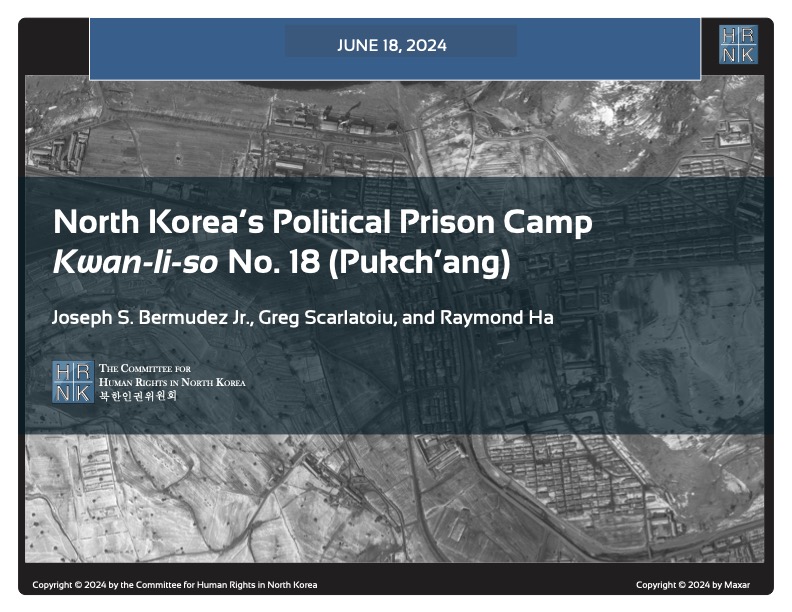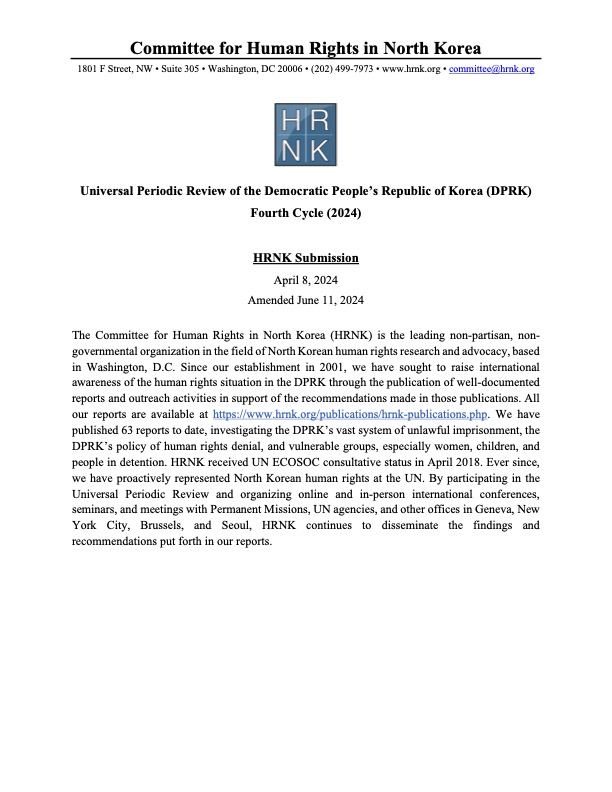| Album Title: | Unification of the Korean Peninsula: Issues and Opportunities |
| Date: | June 25, 2015 |
| Location: | Georgetown University Copley Formal Lounge, 37th and O Street NW, Washington, DC 20007 |
| Description: | THE ANNUAL CONFERENCE OF THE INTERNATIONAL COUNCIL ON KOREAN STUDIES
Jointly with
THE COMMITTEE FOR HUMAN RIGHTS IN NORTH KOREA THE KOREA ECONOMIC INSTITUTE THE ONE FREE KOREA FOUNDATION THE KOREA FOUNDATION and THE CENTER FOR SECURITY STUDIES, GEORGETOWN UNIVERSITY
Partially funded through the generosity of the PHILIP AND PATRICIA BILDEN ASIAN SECURITY STUDIES FUND
June 25-26, 2015 Georgetown University Copley Formal Lounge, Copley Hall 37th and O Street NW, Washington, DC 20007
UNIFICATION OF THE KOREAN PENINSULA:ISSUES AND OPPORTUNITIES
Seating is limited. RSVP is required. Please click here to RSVP. For this event, parking is best in the Southwest Garage just off of Canal Road.
For those who cannot attend this conference it will be live streamed at this linkand will also be recorded for future access. The conference agenda is below.
June 25, 2015, Thursday
08:15 AM Registration Opens 08:45 - 09:00 AM Opening Remarks
Speakers Dr. Bruce E. Bechtol, Jr., President International Council of Korean Studies and Angelo State University
Professor David Maxwell, Associate Director, Center for Security Studies, Georgetown University
Mr. Greg Scarlatoiu, Executive Director Committee for Human Rights in North Korea
Dr. Mark Tokola, Vice President Korea Economic Institute of America
09:00 AM – 11:15 AM Panel I. Human Rights in North Korea: The Impact on Unification
Moderator Dr. Douglas Streusand, Professor, Marine Corps University
Papers "Internal Security Issues and Human Rights in North Korea" Mr. Robert Collins, Committee for Human Rights in North Korea
"Human Security in North Korea" Mr. Greg Scarlatoiu, Executive Director, Committee for Human Rights in North Korea
“Post-Unification Human Rights and Humanitarian Concerns” Ms. Roberta Cohen, Brookings Institution and Co-Chair, Committee for Human Rights in North Korea
Discussants Ms. Rosa Park, Committee for Human Rights in North Korea Dr. Terence J. Roehrig, U.S. Naval War College
11:30 - 12:45 PM Luncheon and Luncheon Speech
“Security and Unification Issues on the Korean Peninsula” General John H. Tilelli, USA (Ret.) Co-Chairman Council on U.S.-Korean Security Studies (U.S. Council)
Introduced by Dr. Bruce E. Bechtol, Jr., ICKS President and Professor, Angelo State University
1:00 PM - 3:00 PM Panel II: Future Shape of Korea’s Economy
Moderator Dr. Soon Paik, U.S. Department of Labor (Ret.) and Professor, Washington University of Virginia and ICKS
Papers "Korean Unification and the Financial System" Mr. Bradley Babson, US-Korea Institute
"Energy and the Environment: Challenges to a Post-Unification Economic Recovery" Mr. Troy Stangarone, Korea Economic Institute of America
“DPRK Agriculture - Recent Developments and Prospects after Unification” Dr. W. Randall Ireson, Rural Development Solutions
Discussants Dr. Mark Manyin, Senior Fellow, Congressional Research Service Dr. Hugo Kim, Professor, Washington University of Virginia and ICKS
3:00 PM - 5:00 PM Panel III: The Major Powers and Korean Unification
Moderator Dr. Patrick Cronin, Senior Advisor and Senior Director Asia-Pacific Security Program, Center for New American Security
Papers "China and the Korean Peninsula: Why the problems?" Mr. Gordon G. Chang, Forbes.com
"Japan’s role in Korean Unification" Mr. James R. Kendall, Sasakawa Peace Foundation, USA
"The North Korean threat to the USA and Unification" Dr. Bruce E. Bechtol Jr., Angelo State University
Discussant Dr. Andrew Scobell, Senior Fellow, RAND Corporation Washington Dr. Jong O. Ra, Professor, Hollins University and Virginia Tech
June 26, 2015, Friday
9:30 AM – 11:30 AM Panel IV: Planning for a Unified Korea
Moderator Dr. Jai P. Ryu, President, One Korea Foundation and Professor Emeritus, Loyola University of Maryland
Papers
"Unification Options and Scenarios" Professor David Maxwell, Georgetown University
"Engagement and Coercion: Finding the Right Combination for the DPRK" Dr. Tara O, Pacific Forum CSIS
“Government and Security in a Unified Korea” Mr. Sungmin Cho, Georgetown University
Discussants Dr. Bruce Bechtol, Angelo State University Dr. Hang Yul Rhee, Professor, Shepherd University (Retired)
11:45 – 12:00 PM Closing Remarks
Speakers Dr. Bruce E. Bechtol, Jr., President International Council of Korean Studies and Angelo State University
Dr. Mark Tokola, Vice President Korea Economic Institute of America
Mr. Greg Scarlatoiu, Executive Director Committee for Human Rights In North Korea
David Maxwell, Associate Director, Center for Security Studies, Georgetown University
12:00 PM End of the Conference |
This is the first satellite imagery report by HRNK on a long-term political prison commonly identified by researchers and former detainees as Kwan-li-so No. 18 (Pukch'ang). This report was concurrently published on Tearline at https://www.tearline.mil/public_page/prison-camp-18.
To understand the challenges faced by the personnel who are involved in North Korea’s nuclear program, it is crucial to understand the recruitment, education, and training processes through the lens of human rights. This report offers a starting point toward that understanding. North Korea’s scientists and engineers are forced to work on the nuclear weapons program regardless of their own interests, preferences, or aspirations. These individuals may be described as “moder
In this submission, HRNK focuses its attention on the following issues in the DPRK: The status of the system of detention facilities, where a multitude of human rights violations are ongoing. The post-COVID human security and human rights status of North Korean women, with particular attention to sexual and gender-based violence (SGBV). The issue of Japanese abductees and South Korean prisoners of war (POWs), abductees, and unjust detainees.
This report provides an abbreviated update to our previous reports on a long-term political prison commonly identified by former prisoners and researchers as Kwan-li-so No. 25 by providing details of activity observed during 2021–2023. This report was originally published on Tearline at https://www.tearline.mil/public_page/prison-camp-25.
This report explains how the Kim regime organizes and implements its policy of human rights denial using the Propaganda and Agitation Department (PAD) to preserve and strengthen its monolithic system of control. The report also provides detailed background on the history of the PAD, as well as a human terrain map that details present and past PAD leadership.

HRNK's latest satellite imagery report analyzes a 5.2 km-long switchback road, visible in commercial satellite imagery, that runs from Testing Tunnel No. 1 at North Korea's Punggye-ri nuclear test facility to the perimeter of Kwan-li-so (political prison camp) no. 16.
This report proposes a long-term, multilateral legal strategy, using existing United Nations resolutions and conventions, and U.S. statutes that are either codified or proposed in appended model legislation, to find, freeze, forfeit, and deposit the proceeds of the North Korean government's kleptocracy into international escrow. These funds would be available for limited, case-by-case disbursements to provide food and medical care for poor North Koreans, and--contingent upon Pyongyang's progress
For thirty years, U.S. North Korea policy have sacrificed human rights for the sake of addressing nuclear weapons. Both the North Korean nuclear and missile programs have thrived. Sidelining human rights to appease the North Korean regime is not the answer, but a fundamental flaw in U.S. policy. (Published by the National Institute for Public Policy)

North Korea’s forced labor enterprise and its state sponsorship of human trafficking certainly continued until the onset of the COVID pandemic. HRNK has endeavored to determine if North Korean entities responsible for exporting workers to China and Russia continued their activities under COVID as well.
George Hutchinson's The Suryong, the Soldier, and Information in the KPA is the second of three building blocks of a multi-year HRNK project to examine North Korea's information environment. Hutchinson's thoroughly researched and sourced report addresses the circulation of information within the Korean People's Army (KPA). Understanding how KPA soldiers receive their information is needed to prepare information campaigns while taking into account all possible contingenc
This report is part of a comprehensive long-term project undertaken by HRNK to use satellite imagery and former prisoner interviews to shed light on human suffering in North Korea by monitoring activity at political prison facilities throughout the nation. This is the second HRNK satellite imagery report detailing activity observed during 2015 to 2021 at a prison facility commonly identified by former prisoners and researchers as “Kwan-li-so No. 14 Kaech’ŏn” (39.646810, 126.117058) and
This report is part of a comprehensive long-term project undertaken by HRNK to use satellite imagery and former prisoner interviews to shed light on human suffering in North Korea by monitoring activity at civil and political prison facilities throughout the nation. This study details activity observed during 1968–1977 and 2002–2021 at a prison facility commonly identified by former prisoners and researchers as "Kyo-hwa-so No. 3, T'osŏng-ni" and endeavors to e
This report is part of a comprehensive long-term project undertaken by HRNK to use satellite imagery and former detainee interviews to shed light on human suffering in the Democratic People’s Republic of Korea (DPRK, more commonly known as North Korea) by monitoring activity at political prison facilities throughout the nation. This report provides an abbreviated update to our previous reports on a long-term political prison commonly identified by former prisoners and researchers as Kwan-li-so
Through satellite imagery analysis and witness testimony, HRNK has identified a previously unknown potential kyo-hwa-so long-term prison-labor facility at Sŏnhwa-dong (선화동) P’ihyŏn-gun, P’yŏngan-bukto, North Korea. While this facility appears to be operational and well maintained, further imagery analysis and witness testimony collection will be necessary in order to irrefutably confirm that Sŏnhwa-dong is a kyo-hwa-so.

"North Korea’s Long-term Prison-Labor Facility Kyo-hwa-so No. 8, Sŭngho-ri (승호리) - Update" is the latest report under a long-term project employing satellite imagery analysis and former political prisoner testimony to shed light on human suffering in North Korea's prison camps.

Human Rights in the Democratic Republic of Korea: The Role of the United Nations" is HRNK's 50th report in our 20-year history. This is even more meaningful as David Hawk's "Hidden Gulag" (2003) was the first report published by HRNK. In his latest report, Hawk details efforts by many UN member states and by the UN’s committees, projects and procedures to promote and protect human rights in the DPRK. The report highlights North Korea’s shifts in its approach
South Africa’s Apartheid and North Korea’s Songbun: Parallels in Crimes against Humanity by Robert Collins underlines similarities between two systematically, deliberately, and thoroughly discriminatory repressive systems. This project began with expert testimony Collins submitted as part of a joint investigation and documentation project scrutinizing human rights violations committed at North Korea’s short-term detention facilities, conducted by the Committee for Human Rights












